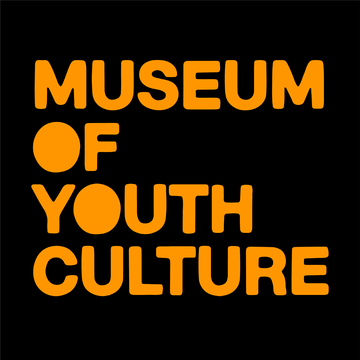
Khakan Qureshi
Khakan Qureshi was interviewed by Amal Malik for the Museum of Youth Culture, and talks about growing up in Birmingham as a gay Muslim in the 1970s and 1980s
Part of the external The Museum of Youth Culture oral history collection
About
Khakan Qureshi grew up in Birmingham during the 1970s and 1980s. Influenced by his political activist father, Khakan was inspired to explore politics himself as a teenager, via joining a theatre youth group. Through theatre, he was able to explore his sexual identity. Facing racism, homophobia and religious guilt as a gay Muslim, Khakan found freedom in London at an LGBTQIA+ drama school. He now runs a support group for LGBTQIA+ South Asians, emphasizing the importance of support networks and representation.
This interview was conducted as part of the ‘Stories of South Asian Youth in Britain’ project, led by the Museum of Youth Culture. Amal Malik conducted the interview, and the full collection of project interviews is available online with the Museum. The Museum of Youth Culture is the world’s first museum dedicated to the story of teenagers and young people, collecting the scenes, styles and social movements forged by youth over the last century.
Listen to Khakan talking about being being gay in 1980s Birmingham.
Interview conducted by Amal Malik.
AM: Was that on you?
KQ: For me, as I said, when I went to secondary school, everything seemed okay. You know, I started off at the age of 11, and then I kind of...as I said, there was this niggling feelings and doubts in the back of my mind. And I was always, always religious-minded anyway. I had a great interest in, you know, Christianity, Hinduism and other religions. So, when I was about 12, 13, 14, maybe in hindsight, I developed a couple of crushes, but it was unspoken, even though people were talking about, you know, pairing off with the opposite sex. But for me, I kind of liked...there was an RE teacher and a PE teacher as well in particular who I kind of admired them, but I couldn't quite put my finger on it as to why. But it was only until I was about 13 or 14 when this other young lad said, 'You go to the Jester'. And I knew what the Jester was, but I...and I said, 'No, you go there because you're that way as well'. But he kept saying I was gay, I was a nancy boy, I was a sissy. And, you know, he was quite homophobic in his remarks, and…which really embarrassed me greatly. Because I didn't have...I did...there was no support systems in place, nobody I could talk to. The guy who was being quite homophobic, he was white, you know, and I didn’t have people of other ethnicities supporting me to say, 'Khakan is just Khakan, what difference does it make?' You know, but again at that age back in the '80s, early '80s, it was a very difficult time because we had...you know, a little bit later on, we had HIV, AIDS, Section 28. So just when we were sort of developing and maturing in that respect, we were not able to express ourselves. And the thing was, when...we weren't able to talk about sex and sexuality in the family household because it's somewhat taboo. And then we can't talk about the same thing in schools either, because we didn't have the toolkit at the time, or the resources. And even when we were trying to make a breakthrough in the mid-80s, obviously the Section 28 kicked in and changed the whole sort of dynamics of the education system, which is most unfortunate for me, and that's why I applaud the...something like the No Outsiders programme which occurred last year and is going to be implemented hopefully in schools this year. But as I said, it was very much a difficult time, because I had religious guilt in my mind, thinking about what it meant to be gay, if I was gay at that time, you know, and if I acted upon it as well, acted upon what they call the desires or needs, and the consequences of that as well. So my sort of mental state, although on the surface I appeared to be quite well, and, you know, managing well and reasonable, internally there was the huge struggles and conflicts, because however I felt didn't sit comfortably with how I presented, and vice versa. And I wish now that there was much more people like me, role models and counsellors maybe, that...who could talk me through it. Or even talking to my own family members, I wish I could have opened up more about it and looked at the level of acceptance, if there was any.
AM: Yeah.
KQ: You know, but yeah, as I said, coming from a Muslim background and, you know, when we talk about the Qur’an, and especially coming from elders as well, who we're conditioned to respect constantly, if they keep saying that, you know, being homosexual is haram, there's nobody on this earth who wants to be put into that category, isn't it? That, you know, that we are not supposed to be here, or not made that way. So in that respect, it was very much in turmoil, but overall I think I presented quite well.
For all permissions requests for audio and video clips and their transcriptions from external collections, please contact the original project or organization.
Entry credit
Anya Amlani
